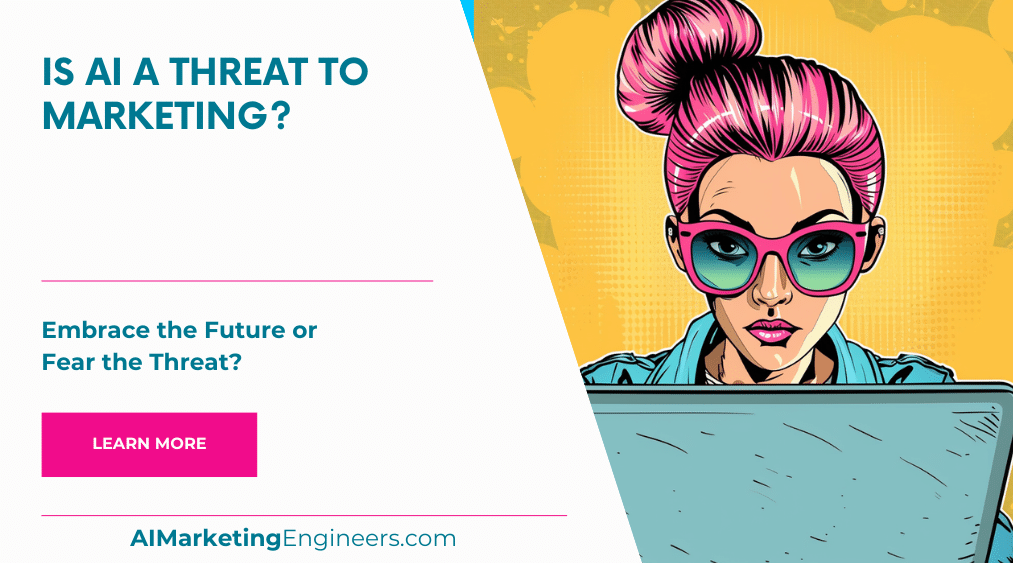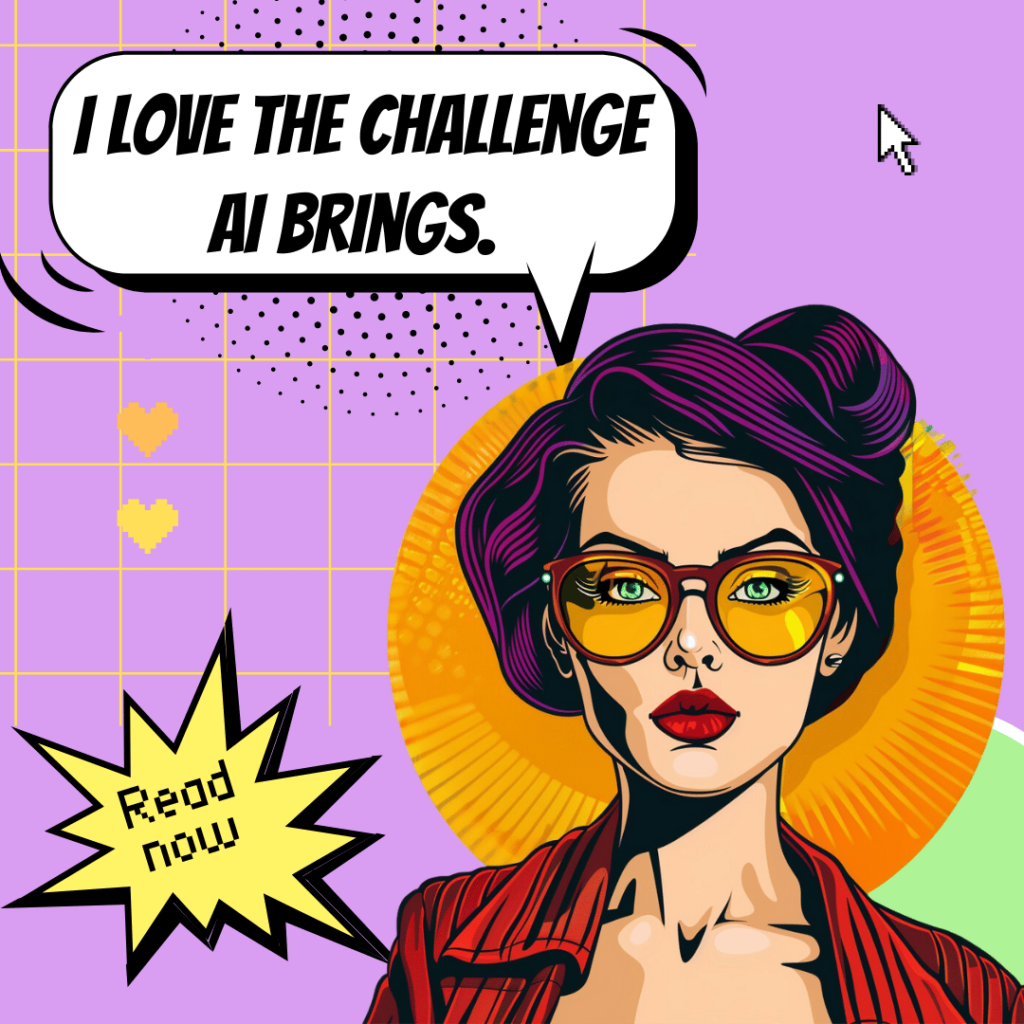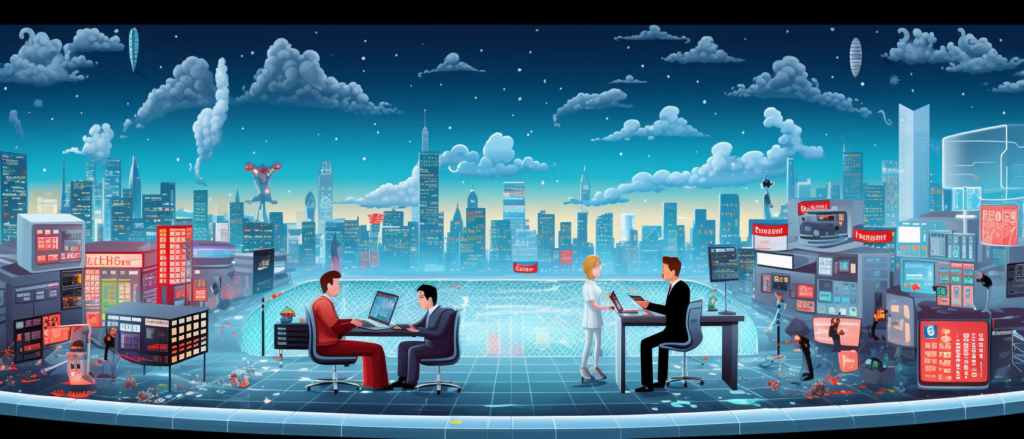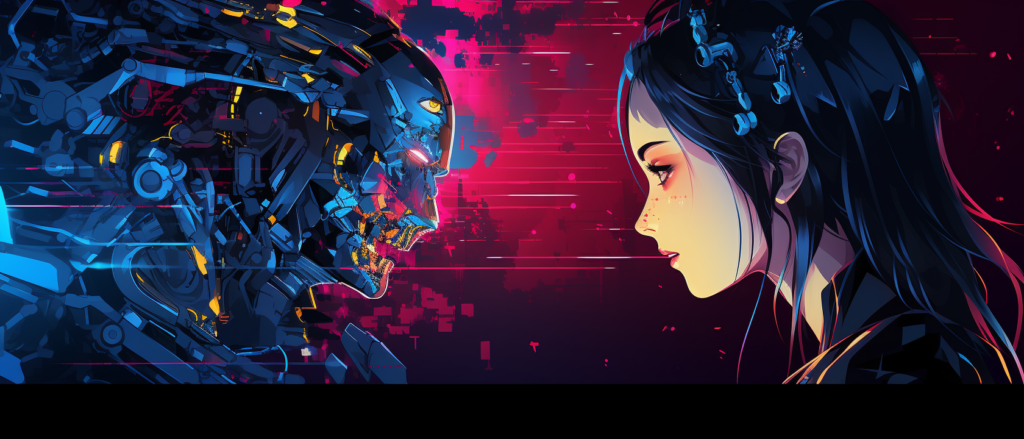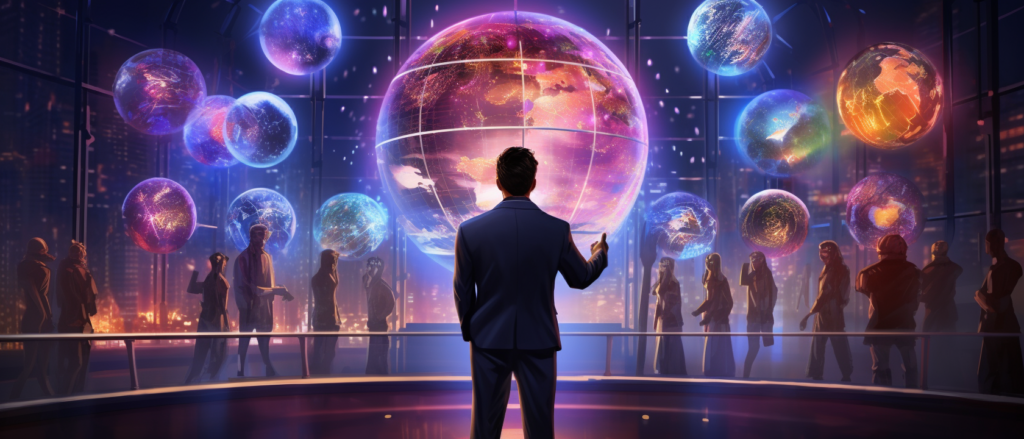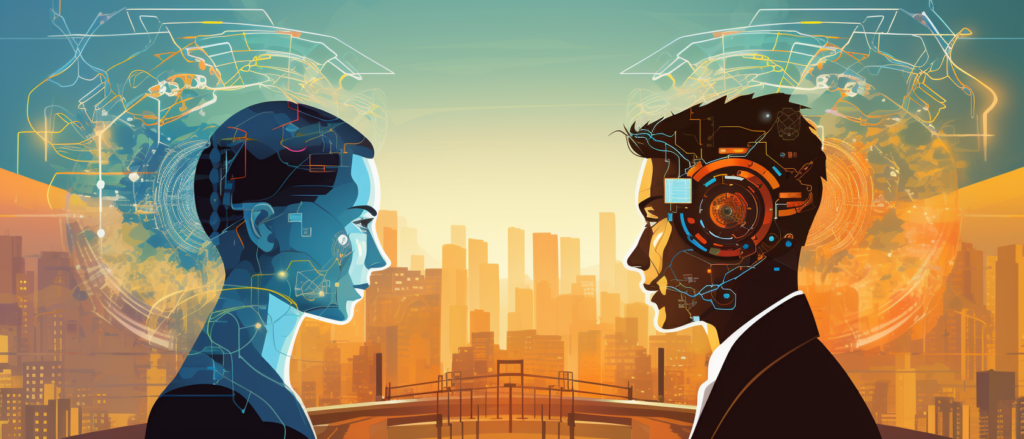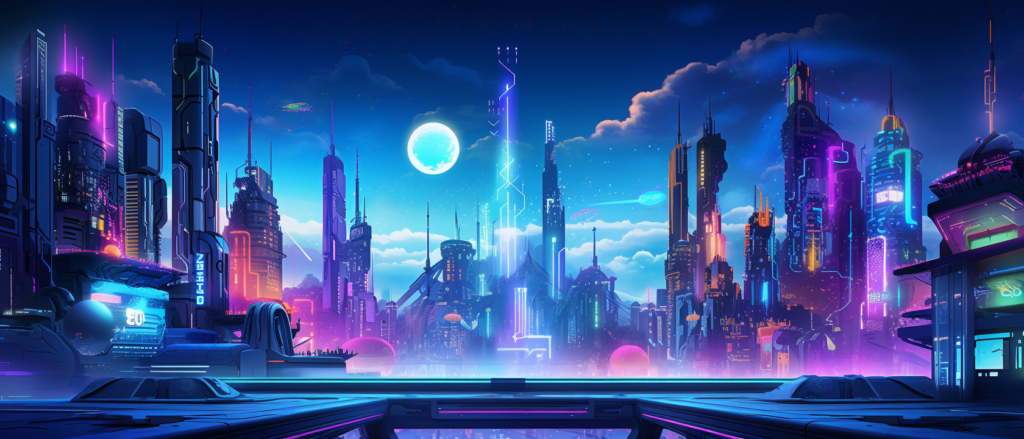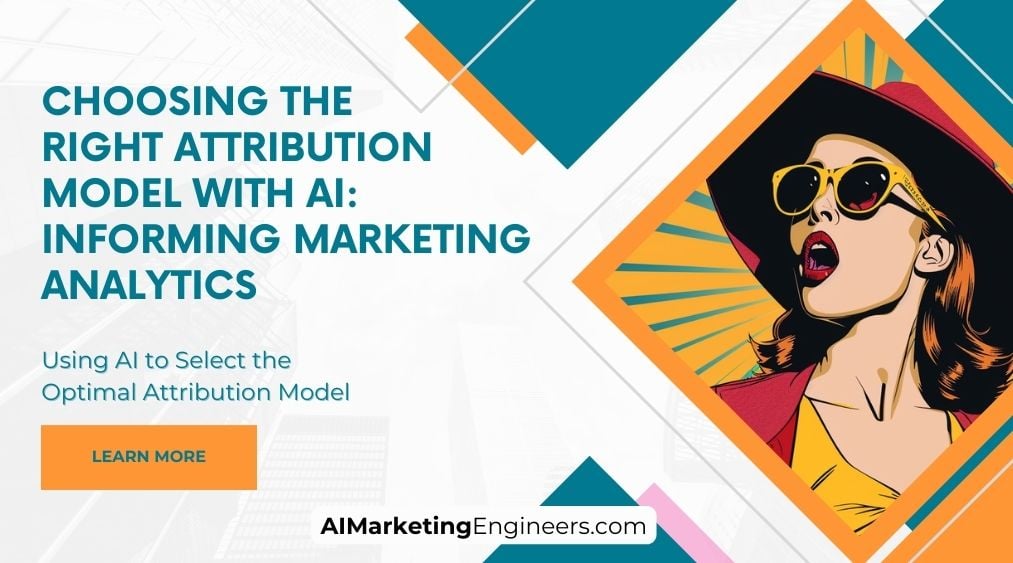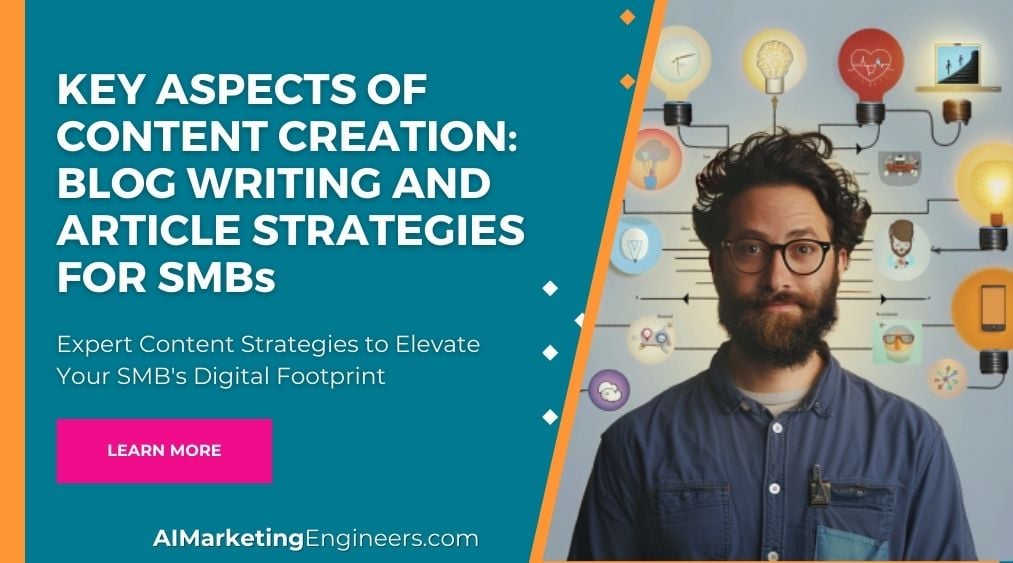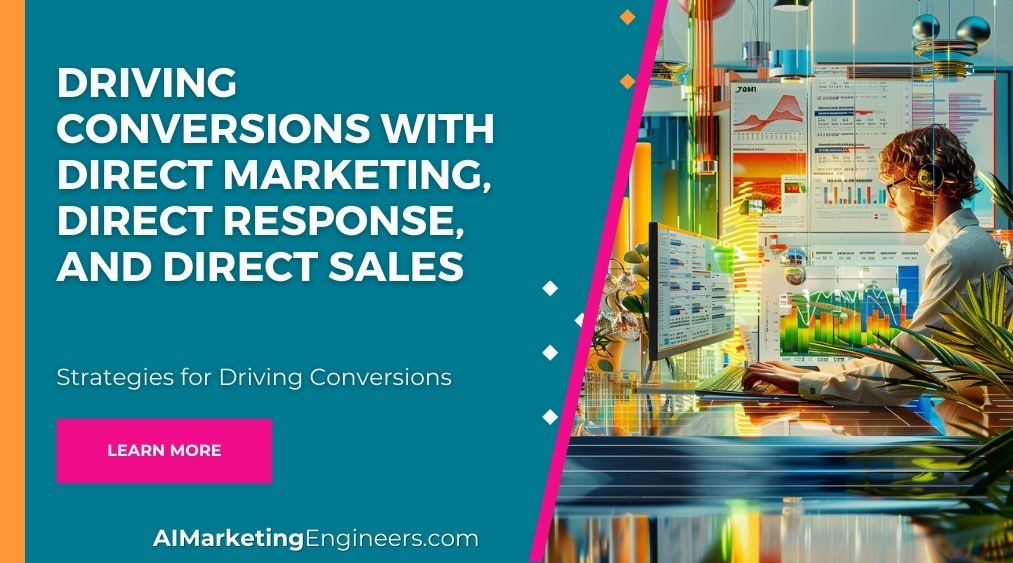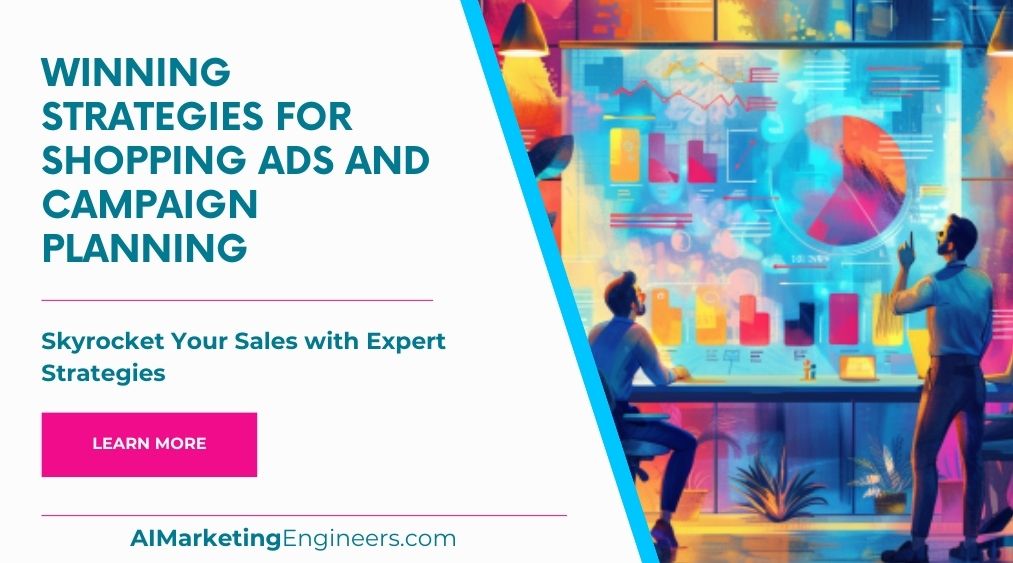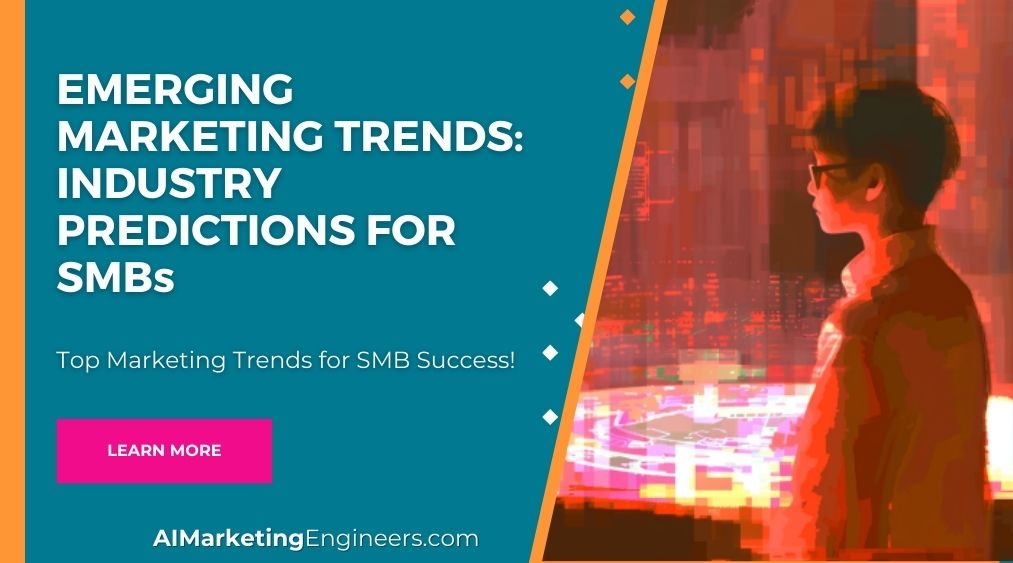Key Takeaways
✅ AI’s versatility and efficiency in processing information can lead to more effective targeting and engagement in marketing, optimizing consumer interactions and driving sales.
✅ The rise of AI necessitates the evolution of traditional marketing roles, urging professionals to develop new skills that complement AI capabilities and focus on strategy and creativity that machines cannot replicate.
✅ Staying informed and educated about the latest AI developments and applications within the marketing sector is essential in leveraging AI as a competitive advantage rather than viewing it as a disruptive threat.
Introduction
Are we about to witness a coup in the marketing world, led by none other than Artificial Intelligence (AI)? Attention-grabbing headlines claim AI is revolutionizing the industry, sparking a mix of fascination and fear. Interest peaks as marketing professionals and businesses ponder whether AI spells doom or is a beacon of progress. Desire for clarity has never been higher as AI flexes its muscles, transforming marketing strategies with its data-crunching prowess and customer interaction capabilities.
In this thought-provoking article, we dissect the contentious debate: Is AI a threat to the very essence of marketing, or is it the innovative ally poised to catapult us into a new era of digital mastery? Join us as we delve into the AI phenomenon and unravel its real impact on the marketing sphere.
The Rise of AI in Marketing
Artificial Intelligence (AI) has become integral to marketing strategies around the globe. With 87% of marketers incorporating at least one form of automation technology and 42% specifically using AI tools, the landscape of digital marketing is evolving rapidly. AI's foothold in the marketing sphere increased by 39% last year, revealing a trend toward more automated content creation and personalized marketing approaches.
Understanding AI and its Types
AI operates by mimicking human intelligence to learn, reason, and solve problems, leading to privacy and regulation considerations. It can be specific (narrow AI) or expansive (AGI and superintelligence), with Forrester Research predicting a 10% increase in marketing efficiency due to AI by 2024. As businesses harness AI to forecast customer needs and tailor the customer experience, they witness a reshaping of traditional marketing roles toward data analysis and strategic implementation.
Enhancing Marketing Efficiency
AI's capabilities are transforming how companies engage with audiences, especially through AI-powered chatbots that help strengthen customer relationships and increase sales. The ubiquity of automation and AI in marketing strategies shows a clear shift towards using technology to enhance business outreach and operations.
Data-Driven Strategic Marketing
With AI's real-time analysis of massive data sets, companies unearth patterns and insights that manual efforts might miss. This advancement supports strategic marketing initiatives and offers a more nuanced understanding of consumer behavior, further indicating AI's influential role in modern digital marketing strategies.
E-commerce Personalization
In e-commerce, AI's ability to tailor shopping experiences based on consumer behaviors and preferences makes it an indispensable tool for companies looking to stand out in a crowded digital marketplace.
Traditional Marketing Methods at Risk
The integration of AI, while beneficial, poses challenges to traditional marketing approaches. It is anticipated that AI will boost marketing efficiency by 10% by 2024, which could potentially render certain traditional marketing methodologies like market research and media buying less relevant.
Job Displacement Concerns
Creating advertising content and conducting market research are becoming increasingly automated, risking the necessary skill set of copywriters and market research analysts. Here, the key challenge is adapting to change and upskilling to meet the demands of AI-centric job roles.
Customer Service Transformation
AI's evolving sophistication in human-like responses may one day reduce the need for human customer service representatives, signifying a shift in the workforce requirements within the marketing sector.
Embracing AI in Marketing
Although perceived as a threat by some, AI offers a substantial opportunity to enhance marketing efficiency and effectiveness. The rapid increase of AI in marketing roles points to a need for marketers to leverage AI as a complement to, rather than a replacement for, human creativity and strategic insight.
Strategic Utilization of AI
To capitalize on the power of AI, marketers must understand and harness its potential to amplify current practices. Recognizing that AI is revolutionizing the way businesses approach digital marketing can prepare organizations to integrate this technology effectively, ensuring that they not only compete but thrive in the evolving digital landscape.
AI Marketing Engineers Recommendation
Artificial Intelligence (AI) is transforming numerous industries, and marketing is no exception. AI-driven analytics and decision-making tools have significantly altered the marketing landscape. But rather than seeing this as a threat, it’s imperative to recognize AI as a powerful ally. By leveraging AI, marketing professionals can gain unparalleled insights, automate mundane tasks, and personalize customer experiences at scale.
While apprehensions around AI replacing human jobs are not unwarranted, our stance at AI Marketing Engineers is that AI should be viewed as an augmentation rather than a replacement. Here's why:
1. Advanced Data Processing:
AI excels at handling large volumes of data. Marketers should utilize AI for data analytics to uncover trends and insights too complex for human analysis. This enables data-driven decision-making that is faster and more accurate.
2. Hyper-Personalization Capabilities:
Through AI, marketers can craft personalized shopping experiences by analyzing individual consumer behavior, predicting preferences, and serving tailored content and recommendations.
3. Efficiency and Automation:
AI can automate repetitive tasks such as campaign analysis, A/B testing, and more. This frees up marketers to focus on creative and strategic initiatives.
4. Customer Engagement:
Chatbots and virtual assistants can enhance customer service, providing instant responses and support, thus building stronger relationships.
5. Predictive Analytics:
AI’s ability to forecast trends and consumer behavior can inform inventory management, content creation, and more, often leading to better ROI.
6. Optimized Spending:
Programmatic advertising powered by AI ensures optimal ad spend by targeting the right audience at the right time, thereby increasing the efficiency of marketing budgets.
The Path Forward:
Marketers must invest in upskilling to understand and work alongside AI. This includes learning to interpret AI-driven analytics and understanding the ethical considerations of data usage.
Organizations should focus on developing an AI strategy that complements marketing goals, approaches technology adoption thoughtfully, and prioritizes customer-centric innovation.
AI is not a threat to marketing; instead, it’s a transformative tool that, when wielded wisely, can elevate the profession. Embracing AI allows marketing professionals to be more strategic and create more impactful campaigns. Our call to action is to adapt, innovate, and harness the potential of AI to become more efficient, data-driven marketers.
At AI Marketing Engineers, we believe that AI is poised to enhance the creativity and strategic input of savvy marketers. By integrating AI into your marketing toolkit, you can stay ahead of the curve and deliver unparalleled value to your business and customers alike.
Conclusion
Despite apprehensions regarding the integration of Artificial Intelligence in the marketing world, it’s imperative to understand the dual-sided nature of AI's influence. When perceived as a threat, AI challenges traditional marketing roles and processes, potentially rendering certain jobs and methodologies obsolete. However, AI also represents a monumental opportunity to catapult marketing into a new era of efficiency and personalization.
The evolution of AI in marketing demands adaptability and a willingness to harness its capabilities to refine and elevate existing strategies. To remain competitive and innovative in a market increasingly influenced by technology, embracing AI and continually educating oneself about its advancements is crucial. Navigating the AI transformation with an open mind and a strategic approach will not only mitigate the perceived threats but also unlock novel avenues for growth and connection with audiences.
FAQs
Question 1: What is AI's impact on marketing?
Answer: AI presents new opportunities for businesses to personalize and optimize their marketing strategies, and to automate repetitive and analytical tasks.
Question 2: Can AI replace the role of marketers?
Answer: AI can't fully replace marketers as marketing requires human creativity and strategic thinking. However, AI can support marketers by taking over certain tasks.
Question 3: In what ways can AI reshape the marketing industry?
Answer: AI reshapes marketing by providing advanced analysis on customer behavior and preferences, allowing for more personalized and data-driven marketing strategies.
Question 4: What are the practical applications of AI in marketing?
Answer: Practical applications of AI in marketing include chatbots, personalized recommendations, campaign optimization, lead scoring, and social media analytics.
